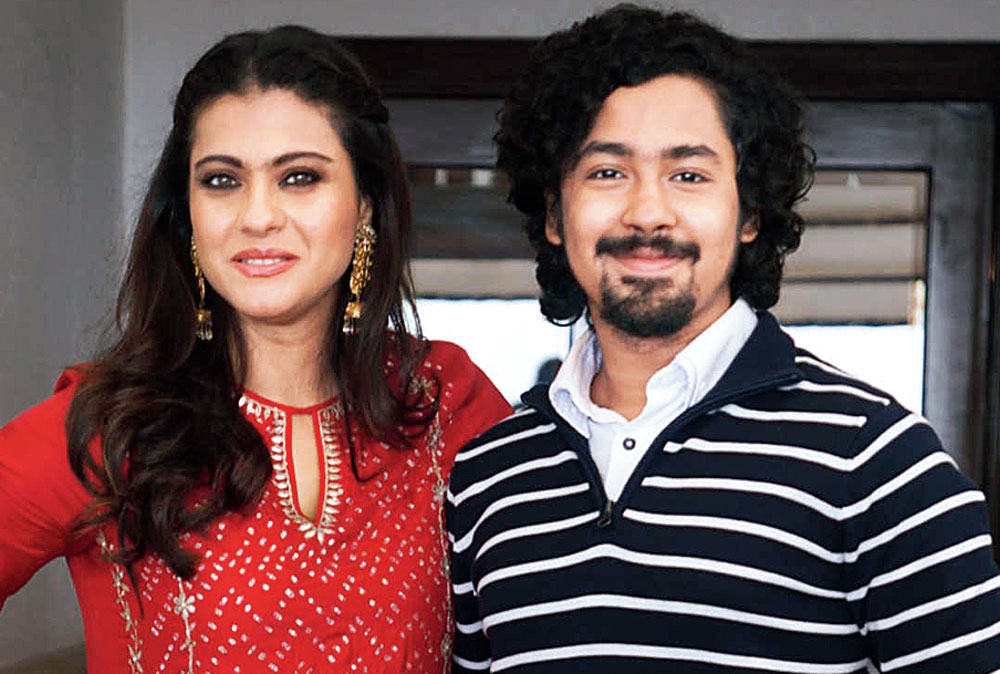National Award winner is a tag that 20-year-old Riddhi Sen is still getting used to. “It is exhilarating but it also feels like too much. I am just at the beginning of my career. If I manage to sustain what I am doing right now for the next five or 10 years, then I’ll feel more comfortable with being described as a National Award winner,” Riddhi told t2 recently during the promotions of Helicopter Eela.
You’ve been working in Bangla films for quite sometime. Is Bollywood a different beast?
I come from a family of actors and have been in theatre for a while. Bollywood, though, is a huge industry, and a national one. There are perks of being in a national industry but the competition is high, and there are people from all over trying to get in all the time to work here. The good thing about the Hindi film industry is that everyone has a space, big or small, and that’s what differentiates it from the regional film industry.
There’s also the economic factor — there we shoot films in 16-17 days. The one (Nagarkirtan) I got a National Award for was shot in 18 days. I was playing a transgender girl and one ideally needs six months to prepare for it, but I couldn’t; neither I nor my director (Kaushik Ganguly) had the luxury of time with the budgets we had. He was already under so much pressure on this film because people are scared to produce movies on transgenders. These are the kinds of differences, because there you need to prepare on your own and you don’t get much time on set, whereas here you get 50 days.
Aditi Rao Hydari, a co-actor and friend of mine who’s worked in multiple industries, once said to me that the real difference is not the industry but the director and producer, because there are good directors and producers everywhere.
There must also be a difference between how you navigate within the Bangla film industry and Bollywood that doesn’t really know you.
There’s definitely a difference, because there everyone knows me and my parents (Koushik and Reshmi Sen). But again, I never felt out of place or awkward in Bollywood mainly because of the directors I’ve worked with.
I owe a lot to my parents and the way I was brought up — in spite of everyone there knowing them, they never tried to launch me or introduce me to anything. The kind of education they gave me has made me independent.
When I was working in Kahaani, Sujoyda (Ghosh) asked my parents about my remuneration and they told him ‘nothing’, because it was my first film. They made sure I wasn’t treated in a special way, and that I wouldn’t take anything for granted. Then there’s the additional pressure of coming from a family of celebrated actors — in Bengal, I have to constantly prove myself to break that. Ultimately, whether it’s this industry or that, all that matters is whether you’re a good actor or not.
At 20, you are too young to be a leading man and too old to be a child actor. Is there a worry that filmmakers and the audience wouldn’t know where to slot you?
Not really. Firstly, I think I have a lot of time in hand — I’m not one of those people who’ll rush into eight-nine films a year. I’m still learning right now, and I still don’t have that need to become a star or a celebrity. Life is insecure as it is and possibly more so for an actor because it’s not like you get a pension when you retire. Which is why I don’t want to hurry my process, and I’d like to absorb as much and let’s see where my intuition and education take me in the next five-six years. I’m getting more than what I deserve, and more than what others my age are getting, so I’m really happy with it.
How did Helicopter Eela come your way?
In 2016, I did an ad film with Pradeepda (Sarkar), and he saw Parched after that. Later I got to know that after working on that ad, he’d already decided I was going to play this role. In mid-July last year, he called to tell me he was planning a film after a long time, and Kajol would be playing my mother. And I was like ‘What?!’ Two months later, I was asked to come to Mumbai. I thought I was going to go through auditions but one of his ADs (assistant directors) told me I was already cast in the film.
That very evening, Kajol ma’am came, we heard the final draft of the script together. The next day, we went through Dada’s process of recording an audiobook.
On the first day on set, we had rehearsed everything but once the camera starts rolling, you end up doing a lot of things that are unplanned and those things comforted me — it made me feel like we were in a comfort zone and things were on the right track. We just needed to find the kind of bonding that people would love and that was the toughest thing. Rehearsals and all are fine but when you end up with something completely different during the final take, you know there’s something. I’ve now grown super attached to her, and once the promotions are over, I know I’ll be missing her.











